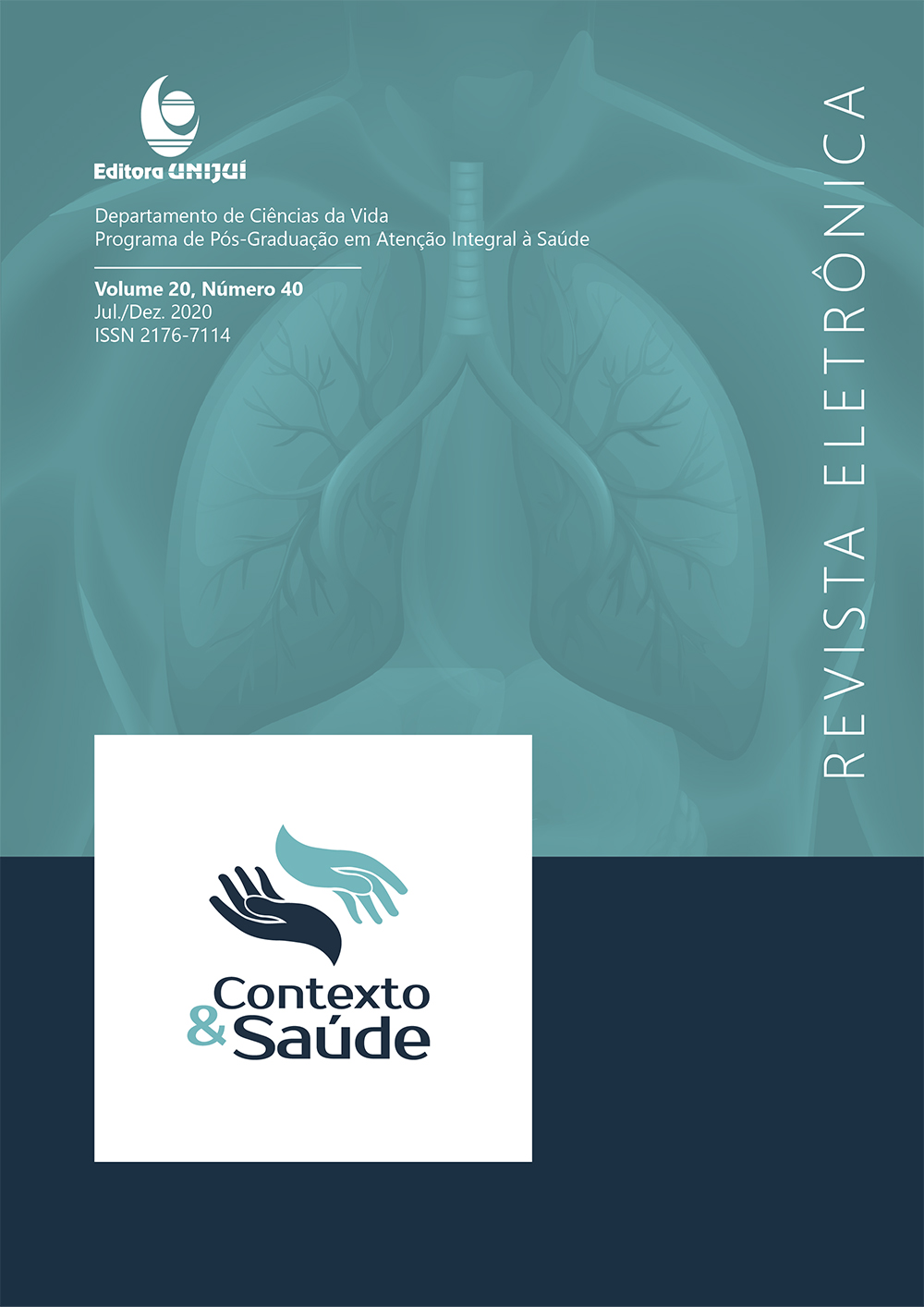TRATAMENTO FARMACOLÓGICO E NÃO FARMACOLÓGICO NO MANEJO DA DOR DE PACIENTES EM PÓS-OPERATÓRIO IMEDIATO (POI)
DOI:
https://doi.org/10.21527/2176-7114.2020.40.102-117Palavras-chave:
Manejo da dor; Pós-operatório; Tratamento farmacológico; Terapia complementar; Eventos adversos.Resumo
O objetivo deste estudo foi analisar evidências científicas referentes às modalidades farmacológicas e não farmacológicas utilizadas no manejo da dor de pacientes em Pós-Operatório Imediato (POI) de cirurgias em geral. Este é uma revisão integrativa da literatura realizada nas bases LILACS, MEDLINE/PUBMED, Scopus e Web of Science, entre 2002 e 2017, que resultou na análise de 38 artigos científicos. Dos artigos analisados, 71% abordaram métodos farmacológicos e 28% medidas não farmacológicas para o tratamento da dor no POI. O manejo adequado da dor é de responsabilidade dos profissionais envolvidos no cuidado e os hospitais devem ter equipes e procedimentos para alívio da dor para diminuir efeitos colaterais, tempo de hospitalização e acelerar a recuperação do paciente. Os métodos não farmacológicos podem ser uma modalidade complementar promissora para melhorar a dor no pós-operatório, pois são técnicas acessíveis e fáceis de serem executadas e quando praticada por profissionais capacitados, os eventos adversos ocorrem raramente.
Downloads
Publicado
Como Citar
Edição
Seção
Licença
Ao publicar na Revista Contexto & Saúde, os autores concordam com os seguintes termos:
Os trabalhos seguem a licença Creative Commons Atribuição 4.0 Internacional (CC BY 4.0), que permite:
Compartilhar — copiar e redistribuir o material em qualquer meio ou formato;
Adaptar — remixar, transformar e criar a partir do material para qualquer fim, inclusive comercial.
Essas permissões são irrevogáveis, desde que respeitados os seguintes termos:
Atribuição — os autores devem ser devidamente creditados, com link para a licença e indicação de eventuais alterações realizadas.
Sem restrições adicionais — não podem ser aplicadas condições legais ou tecnológicas que restrinjam o uso permitido pela licença.
Avisos:
A licença não se aplica a elementos em domínio público ou cobertos por exceções legais.
A licença não garante todos os direitos necessários para usos específicos (ex.: direitos de imagem, privacidade ou morais).
A revista não se responsabiliza pelas opiniões expressas nos artigos, que são de exclusiva responsabilidade dos autores. O Editor, com o apoio do Comitê Editorial, reserva-se o direito de sugerir ou solicitar modificações quando necessário.
Somente serão aceitos artigos científicos originais, com resultados de pesquisas de interesse que não tenham sido publicados nem submetidos simultaneamente a outro periódico com o mesmo objetivo.
A menção a marcas comerciais ou produtos específicos destina-se apenas à identificação, sem qualquer vínculo promocional por parte dos autores ou da revista.
Contrato de Licença (para artigos publicados a partir de setembro/2025): Os autores mantém os direitos autorais sobre seu artigo, e concedem à Revista Contexto & Saúde o direito de primeira publicação.

